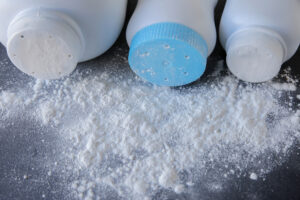Defective Products
If a product isn’t designed or manufactured properly, or if it lacks adequate safety warnings, it may cause serious harm to consumers. If you or a loved one has suffered an injury from a flawed product, you may be able to seek compensation crom a defective product lawsuit. Learn about some common types of defective products and how a defective product attorney can help you take legal action.
Why Take Legal Action?
By filing a product liability lawsuit, you can pursue financial compensation and justice from the companies that caused you or a loved one harm.
Results Secured
- $40 million for a veteran exposed to asbestos from Goodyear gaskets
- $1.16 million for a Roundup® victim in New York
- $575,000 for a man in Florida who suffered chemical burns from Just for Men® hair dye
What Are Defective Products?
Defective products are consumer goods that cause injury due to a defect in the way the product was designed, manufactured, marketed, or sold. Common examples of consumer products that are sometimes defective are cars, airbags, medical equipment, and toys.
Consumers who have been injured by a defective product may be able to file a product liability lawsuit against any responsible parties. These parties often include the product manufacturer, distributor, and retailer.
This area of the law is known as product liability. Tens of thousands of product liability lawsuits are filed each year, with case filings growing in number in recent years.
The two most common types of products involved in these lawsuits are pharmaceutical and medical devices and vehicles, according to legal reporter LexisNexis.
If you or a loved one was injured by a defective product, you may be able to take legal action. Reach out to one of our team members right now to get started.
What Makes Products Defective?
Defective products typically fall into one or more of these three categories:
- Design defects
- Manufacturing defects
- Warning label and marketing defects
Find out more about what may go wrong with products sold by negligent manufactures.
Design Defects
Design defects are defects that are part of a product’s original design.
For example, due to their defective design, a certain brand of car airbags sometimes exploded after long-term exposure to high heat and humidity. The explosions caused injuries and deaths, and tens of millions of cars with these airbags were recalled.
Manufacturing Defects
Manufacturing defects occur during the process in which a product is made.
If a manufacturer uses cheap materials to create a product or fails to assemble a product’s parts correctly, they could put a dangerous product on the market. Similarly, a food manufacturer may create lethal food items if food is not properly packaged or contamination takes place during the manufacturing process.
Warning Label & Marketing Defects
Companies may be responsible for causing injury if they fail to label their products with clear instructions regarding proper use or fail to provide adequate warnings about the possible dangers associated with the product.
Common Types of Defective Products
While any product has the potential to have a defect, some products are more likely to be flawed. Keep reading to learn about some common types of defective products.
Medical Devices
Medical devices sometimes have dangerous defects that can cause significant harm, including cancer, chronic pain, blood clots, and bone abnormalities.
Product liability lawsuits have been filed over these medical devices:
- Adult palate expanders
- Bard® PowerPort
- Blood clot filters
- Breast implants
- Exactech® ankle, hip & knee replacements
- Hernia mesh
- Implantable ports
- Pacemakers
- Paragard® intrauterine devices (IUDs)
- Philips CPAP machines
- Transvaginal mesh
- Spinal rods
- Stents
- Synovo® Total Hip System
- Surgical staplers
- Zimmer Biomet hip replacement
Dangerous Drugs
Some over-the-counter and prescription drugs can cause serious side effects, including cancer, kidney disease, and strokes. Dangerous drugs are sometimes tainted or lack adequate warnings.
Product liability lawsuits have been filed over these dangerous drugs:
- Abilify
- Accutane
- Actos
- Depakote
- Depo-Provera®
- Elmiron
- HIV drugs
- Levaquin
- Lyrica
- Ozempic
- Risperdal
- Suboxone®
- Taxotere
- Tepezza®
- Tylenol®
- Veozah®
If you or a loved one has suffered an injury as a result of using a defective medical device or dangerous drug, LawFirm.com may be able to help. Our case managers can listen to your story and help you figure out your next step.

Our case managers can answer your questions and connect you to an attorney.
Chat NowVehicles and Vehicle Parts
Defective cars, trucks, and auto parts can malfunction, causing deadly car accidents.
Product liability lawsuits have been filed over these vehicle parts:
- Airbags
- Brakes
- Fuel tanks
- Ignition switches
- Tires
Food Products
Food products are considered defective when a parasite, virus, or bacteria contaminates the food at any point in the production process. Defective food products can cause a range of symptoms, including abdominal pain, diarrhea, fever, nausea, and vomiting.
In some cases, food poisoning can lead to serious illnesses like kidney disease and even death, especially in young children, seniors, and people with weakened immune systems.
“Every year, an estimated 1 in 6 Americans (or 48 million people) get sick, 128,000 are hospitalized, and 3,000 die from foodborne diseases.”
– Centers for Disease Control and Prevention (CDC)
Various studies have also identified other food defects and dangers. The artificial sweetener erythritol, for example, has recently been linked to an increased risk of heart attack and stroke.
Cosmetics

Defective cosmetic products often contain harmful chemicals that can cause injuries ranging from allergic reactions to serious health problems like blindness and cancer.
Many women are now filing product liability lawsuits after developing cancer following the use of chemical hair straighteners.
Even some talc products have been shown to increase the risk of certain cancers.
Pesticides & Weed Killers
Some products used to kill weeds have been linked to cancer and other diseases.
Product liability lawsuits have been filed over these products:
- Roundup®: This trusted garden product contains glyphosate, a potential carcinogen. Exposure to Roundup has now been linked to non-Hodgkin’s lymphoma and other types of cancer.
- Paraquat: Paraquat, a poisonous chemical used to kill weeds and grass, has been linked to Parkinson’s disease.
Negligent product manufacturers should be held accountable for defective products that harm innocent consumers. Learn if you qualify for a defective product lawsuit by filling out our online form.
Baby Products & Toys
Baby products and children’s toys are considered defective products when they contain small pieces that are choking hazards, paints or other materials that contain toxic chemicals, or if the product’s design may otherwise be harmful to a child’s health.
Boppy® pillows and inclined infant sleepers, for example, can pose suffocation risks to babies. Additionally, children’s sleepwear may be considered defective if it isn’t flame resistant or has parts like buttons or tags that are choking hazards.
Cow’s milk-based baby formulas like Enfamil™ and Similac® have been linked to necrotizing enterocolitis (NEC), a potentially life-threatening condition that mostly affects premature babies.
Household Appliances & Goods
Many household appliances and everyday products have the potential to harm consumers. Defective appliances like dryers, ovens, and furnaces can catch fire or explode. Generators can emit deadly carbon dioxide.
Industrial Equipment
Defective industrial equipment puts workers at risk and can cause permanent injury or death. Workers may be able to file defective product liability lawsuits against the companies that manufactured, distributed, or sold the equipment.
Some examples of industrial equipment that may be defective include:
- Food processing equipment
- Forklifts, cranes, and loaders
- Laser cutting equipment
- Machine presses
- Metalworking machinery
- Packing and printing machines
- Textile and fabric machinery
- Wood cutting machinery
Additionally, asbestos-containing products fall under this category. Up until the mid-1980s, many manufacturers used asbestos, a deadly carcinogen, in their products. Asbestos could be found in brakes, gaskets, insulation, and many other products used in the military and many blue-collar jobs.
Asbestos lawsuits allow people to pursue compensation for mesothelioma and other asbestos-related diseases.
Our team can help you take the first step toward pursuing compensation — and justice — for an injury caused by a defective product. Call (888) 726-9160 or fill out our online form for a free case review.
Filing a Defective Product Lawsuit
Defective products can cause property damage, permanent injury, and in the worst-case scenario, death.
However, people who have been hurt by defective products may be able to pursue financial compensation for their losses by filing a defective product lawsuit.
Depending on the specifics of your case, you may be able to file a personal injury or wrongful death lawsuit:
- Product liability personal injury lawsuits hold sellers, manufacturers, and others in the product’s chain of distribution responsible for placing the defective product into your hands and causing your injuries.
- Product liability wrongful death lawsuits are filed by family members when a loved one dies as a result of using a defective product.
For a defective product lawsuit to succeed, your lawyer must prove that your injuries were caused by negligence — that is, the companies in the product’s distribution chain acted negligently, resulting in a design, manufacturing, or marketing defect that hurt you.
In strict liability cases, you do not need to prove negligence. Strict liability usually arises in cases in which a product is inherently dangerous, such as pesticides or chemicals.
Several other options may be available, depending on the product involved. You can read about them below.
Class Action Lawsuit
A class action lawsuit for a defective product is an action brought by one or more plaintiffs on behalf of a “class” of people who have sustained similar injuries from a defective product.
Mass Tort
A mass tort defective product lawsuit also involves many individuals with similar grievances. The main difference between a class action and a mass tort is that the court treats mass tort plaintiffs as individuals. As such, each plaintiff receives compensation for harm caused by the defective product that reflects their specific damages.
Multidistrict Litigation (MDL)
Multidistrict litigation streamlines the legal process for complex federal cases. MDLs often involve product liability cases in which many consumers were injured by a defective product in similar ways but to different degrees.
If you’re unsure about which option is best for you, a defective products lawyer can help.
LawFirm.com can connect you with a top product defect lawyer. Get started right now with a free case review.
Benefits of Product Liability Lawsuits
Filing a defective product lawsuit may seem daunting, time consuming, and stressful.
However, a defective product attorney can do all the heavy lifting, handle your case from start to finish, and fight for the compensation you deserve.
It’s not unusual for compensation from product liability lawsuits to hit $1 million or more.
In 2020, the median personal injury jury award for a product liability lawsuit was $3.9 million, and the average award was $7 million, according to data reported by the Insurance Information Institute.
However, keep in mind that lawsuit payouts vary greatly based on the products and injuries involved, and most defective product lawsuits are resolved through settlements and not jury verdicts.
A lawyer can give you a better idea of what your case may be worth.
That said, some benefits of a defective product lawsuit include:
- Financial compensation: Compensation from a lawsuit can help pay for property damage, medical bills, and pain and suffering.
- Justice: No one deserves to be hurt by a defective product. A product liability lawsuit allows you to hold companies responsible for putting a dangerous product on the market.
- Help others: A product liability lawsuit can result in defective products being recalled or otherwise removed from the marketplace.
Get Help With a Defective Product Lawsuit
No one should be harmed by a product that they assumed was safe to use. Careless companies should be held responsible for manufacturing and selling dangerous products that injure innocent consumers.
If you or a loved one has been hurt by a defective product, LawFirm.com may be able to help.
The defective product lawyers in our network have the experience and resources to go head-to-head with powerful companies and recover maximum compensation for clients.
These attorneys never charge any upfront fees, and they can help families in all 50 states.
Call us at (888) 726-9160 now to get started with a free case review.
Product Defects FAQs
What is a defective product?
A defective product is a product that causes harm to a person as a result of a flaw in design, manufacture, marketing, or sale.
Some common types of faulty products include medical devices, dangerous drugs, auto parts, and pesticides.
Defective product lawyers can evaluate your case to see if you are eligible to file a product liability suit.
What are the three types of product defects?
The three types of product defects are product design defects, manufacturing defects, and instruction or warning defects.
Can a manufacturer be sued for defective product?
Yes, it’s possible to sue a manufacturer for a defective product. To prove a product liability claim, you will need to show that you used the product as intended, the product caused you harm, and the manufacturer breached its duty to you.
A product liability lawyer can help you prove your case and negotiate a settlement with the manufacturer, wholesaler and/or any other responsible parties.
How do I find a defective product lawyer near me?
You can ask friends or family for recommendations or search the internet. Ask any defective product attorneys whether they have handled personal injury cases like yours and the results they have achieved for past clients.
LawFirm.com can also connect you with a product liability attorney in your area. We have personal injury lawyers in our network who specialize in product liability law. They never charge any upfront fees and only take a small percentage of any money they recover for you.
Get started now with a free consultation.
Fact-Checked and Legally Reviewed by: Rae Theodore
Rae Theodore is a writer and editor with more than 30 years of experience in legal publishing. She earned a bachelor’s degree in English from Pennsylvania State University.
- American Museum of Tort Law. “Grimshaw v. Ford Motor Company, 1981.” Retrieved January 10, 2025, from https://www.tortmuseum.org/ford-pinto/.
- Beyond Pesticides. “Lawsuit Challenges TruGreen Chemical Lawn Care Company for Deceptive Safety Claims; Pesticide Applications Stopped by Some States During COVID-19 Crisis as Nonessential.” Retrieved January 10, 2025, from https://beyondpesticides.org/dailynewsblog/2020/03/lawsuit-challenges-trugreen-chemical-lawn-care-company-for-deceptive-safety-claims-pesticide-applications-stopped-by-some-states-during-covid-19-crisis-as-nonessential/.
- Consumer Reports. “10 Risky Recalled Foods You Should Know About.” Retrieved January 10, 2025, from https://www.consumerreports.org/health/food-recalls/risky-recalled-foods-you-should-know-about-a4109713872/.
- Cornell Law School: Legal Information Institute. “Class action.” Retrieved January 10, 2025, from https://www.law.cornell.edu/wex/class_action.
- Cornell Law School: Legal Information Institute. “Products liability.” Retrieved January 10, 2025, from https://www.law.cornell.edu/wex/products_liability.
- Insurance Information Institute. “Facts + Statistics: Product liability.” Retrieved January 10, 2025, from https://www.iii.org/fact-statistic/facts-statistics-product-liability.
- Justice Pesticides. “Hoffmann et al v. Syngenta et. al.” Retrieved January 10, 2025, from https://justicepesticides.org/en/juridic_case/hoffmann-et-al-v-syngenta-et-al/.
- LexisNexis. “Drug Distributors and Medical Device Makers Increasingly Targeted in Lawsuits.” Retrieved January 10, 2025, from https://www.lexisnexis.com/community/insights/legal/b/thought-leadership/posts/drug-distributors-and-medical-device-makers-increasingly-targeted-in-lawsuits.
- Medical Design & Outsourcing. “MDO analysis: FDA medical device recalls drop to lowest levels since 2013.” Retrieved January 10, 2025, from https://www.medicaldesignandoutsourcing.com/da-medical-device-recalls-decrease-data-analysis-fiscal-2021/
- United States Department of Transportation: NHTSA. “Takata Recall Spotlight.” Retrieved January 10, 2025, from https://www.nhtsa.gov/equipment/takata-recall-spotlight.


 Get a Free Case Review
Get a Free Case Review